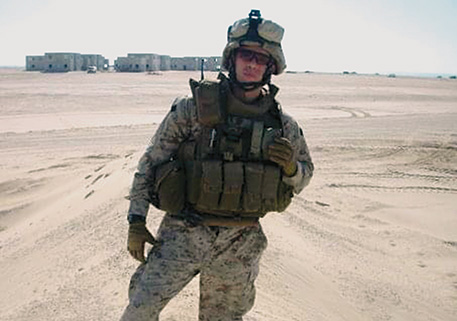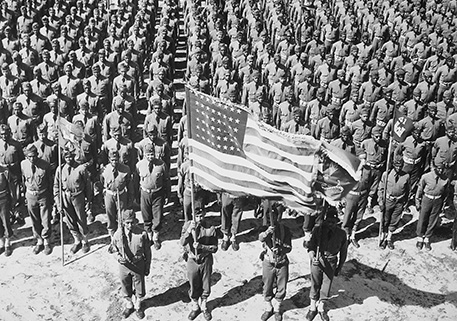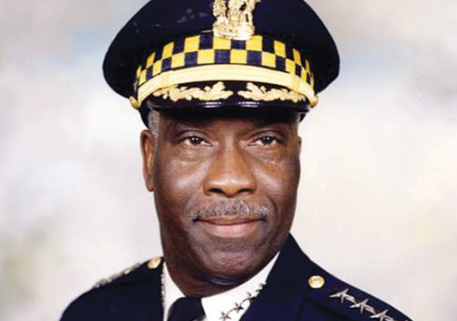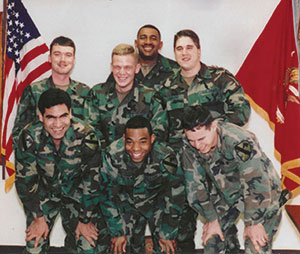
Ed Faraone loves boxing. Photos, memorabilia and autographed gloves of fighters such as George Foreman, Joe Frazier and Manny Pacquaio adorn the walls of his home near Sarasota, Florida. Faraone said he’s managed to collect about 62 gloves over the years and is only still searching for one signed by Muhammad Ali.
There are a lot of parallels between these boxers’ careers and Faraone’s life over the past 25 years. Much like a fighter, he’s been dealt quite a few blows that have nearly knocked him out.
Faraone served nearly six years in the Army as a nurse before medical retirement for asthma in 1997. He received a disability rating from the Department of Defense, but no one told him about benefits from the Department of Veterans Affairs or that he had access to them for continued care. He recalls quickly signing and dating lots of paperwork but getting little direction as to what to do next.
“When you’re let out, it’s just as much hurry-up-and-leave as it is hurry-up-and-wait when you’re in the military,” he said of his experience.
Over the following years, his health worsened. By 2010, it was common for him to be in the hospital for four or five weeks at a time. And as doctors struggled to fully diagnose what was wrong, his employer laid him off.
Because he couldn’t work, he and his wife found themselves living on less than $650 a month. Fortunately, he said, they owned their home and figured out how to survive.
This scenario continued for nearly a decade until 2019, when a new primary care doctor took one look at him and asked how long he had had lupus. The question caught Faraone off guard, as that possibility had not come up until then. Tests confirmed the doctor’s hunch and started providing answers to the medical issues Faraone had faced for years.
Around the same time, Faraone once again fell very ill. But instead of going back to the local hospital where he feared he’d be stuck without answers, he asked his wife to drive him to the VA hospital emergency room more than an hour away in Bay Pines. He was assigned to a rheumatologist, dermatologist and gastrointestinal doctor and began receiving care.
While he was being treated by VA doctors, he learned that he may not have been receiving the disability benefits he deserved. He reached out to the Florida governor’s office for help locating his military medical records, unaware they were available through the VA. The staff armed him with a piece of information that ultimately changed his life.
“She gave me a phone number and she said, ‘Call this number and they can assist you,’” Faraone said. “And on the day that I called, I got transferred to Jackie.”
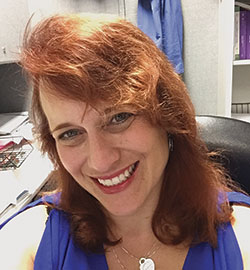

Jackie Graham, a DAV benefits advocate, had a similar experience as Faraone when she transitioned from the Army in 2005. She described her exit like being thrown into a swimming pool without knowing how to swim.
“When I got out, the VA was just a pamphlet,” said Graham.
Today, service members have access to many more resources, including mandatory transition classes, but the process can still be a challenge to navigate. That’s where Graham said she comes in, drawing inspiration from her own experience of filing a VA disability claim to help guide others through the process. She’s been helping veterans in different capacities since she left military service. Being a benefits advocate, she said, allows her to combine her passion for research with helping veterans like Faraone.
During Graham’s first conversation with him, she learned about the struggle to locate his service treatment records. She discovered that in the hurried transition process out of the military, a 1997 VA claim was misfiled in his records and was never processed or adjudicated.
Finding both the records and the unadjudicated claim, Graham was able to help him schedule appointments and file for and receive a VA disability rating for his asthma and several other service-connected illnesses and injuries.
National Service Director Jim Marszalek said Graham’s actions and skill demonstrate what makes DAV’s benefits advocates invaluable to veterans navigating the VA health care system.
“Because of her attention to detail and understanding of the adjudication process, she was able to give this veteran a peace of mind that he has not been able to experience for more than two decades,” said Marszalek.
For Faraone, working with Graham and DAV was a refreshing change from how he had been treated the previous 25 years. Instead of getting passed around from person to person, Faraone said that in less than 60 days he was in appointments with VA doctors and Graham was routinely checking on his progress.
“I look at every claim as if it’s my claim,” said Graham. “I’m going to do for you what I would want you to do for me.”
Faraone said he can’t thank Graham enough. He still has a host of medical issues he faces daily, but he credits her with saving him from a path toward homelessness. He said because of her help, he has access to the care he needs and no longer worries about his day-to-day expenses.
Like the great fighters whose photos and gloves hang on the walls of his home office, Faraone has shown the grit and determination to keep fighting for answers to his health problems. He fought many of those rounds on his own and was getting weary, he now has a great team of people in his corner providing guidance, answers, and some relief from the medical and financial burdens he’s faced.
DAV, he says, has helped restore his desire to keep fighting.

